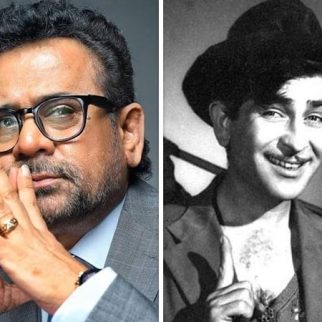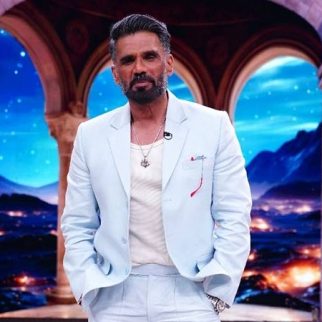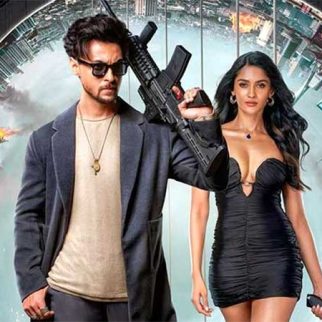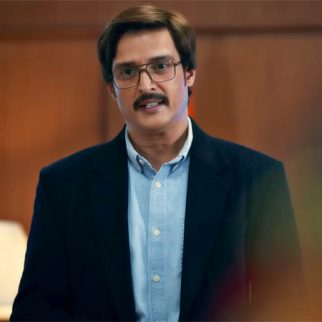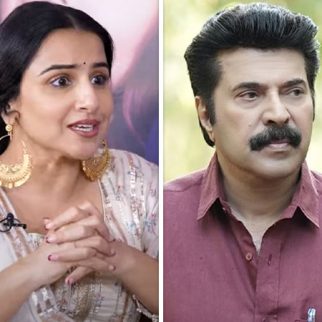
I remember poking Anjum Rajabali for the first time when I met him at the success bash of Rajneeti. Speak of 'poking', one of India's most respected and the finest screenwriter, Anjum has been poking us (audience) with his defining cultural and political views when it comes to films like Pukar, The Legend of Bhagat Singh, Apaharan, Raajneeti and his latest Aarakshan. A look at any of these movies and you feel that Anjum was born to tell these stories that not only reflect the bygone eras, myths, and traditions but very crisply and subtly throws light in today's real world of how one views those tales. Rajabali is one of a small handful whose mere name is enough to evoke an entire conversational style - jabbing, self-aware, and propulsive. It's the sound of characters whose minds and mouths work faster than those of the people around them, guys whose conversational aesthetics is, in Prakash Jha's films - about the absolute total tonnage of words. Whatever you're doing this afternoon, you should carve out at least a few minutes to check out one of India's highly acclaimed screenwriter Anjum Rajabali's interview. It may just inspire you to write the right or simply put - it may just inspire you to go and watch Aarakshan. 'Reserve' your time because this is a must-read!
"Education isn't the backdrop; it's the core issue of the film"
Well, in this case, I am not entirely sure when the idea of doing a film against the backdrop of education germinated in his mind. Maybe it was in 2007, when Firoz Nadiadwala showed him Kamlesh Pandey's story of a university vice-chancellor who gets betrayed by his own students. What I do know is that he asked me to write it with him sometime in late 2007. My interest was conditional actually to us discovering what the issue was in the story. I wasn't keen on a film that merely had education as a backdrop. Education should be the actual issue! Those days there was a major debate going on in the country owing to Arjun Singh's proposal that the Mandal Commission's recommendation of a reserved quota for OBCs be implemented. The case had gone to the Supreme Court. So, I proposed to Prakash that we make the reservation issue as the pivot of our drama. And, while we were brainstorming about the implications of that for our story, the SC came out with its order in April 2008. And that confirmed the idea. Reservation in higher education was to be the pivot of our drama.
"I am a teacher myself so I wanted to know more on the micro level about the commercialization of education"
Also, both Prakash and I were bothered about the commercialization of education and the proliferation of private coaching. Prakash's grief was at the macro level. Being a teacher myself, I was more concerned about what that was doing at the micro level - to the student-teacher relationship, and how that was affecting the culture of learning in educational institutions. As our discussions proceeded, and early drafts of the revised story were written, these two issues kept getting amalgamated into the personal stories of our main characters.
"The most difficult part of the whole screenwriting process is cracking the screenplay itself"
Much as the construction of the story is very critical for a good screenplay, I must admit that the most difficult part of the whole screenwriting process is cracking the screenplay itself. It's a very demanding and a very restrictive craft. There are a lot of imperatives in the cinematic format, which tend to limit how much one can do in it or say. And yet, if one is able to hit the right notes and catch the rhythm, and keep the narrative economical, it can be a deeply satisfying effort.

"For some reason, the Godfather sequences stuck in Raajneeti"
I didn't think up the combination of Mahabharata mixed with some spoonfuls of the Godfather, in advance. Actually, it happened, in a way, against my will. You see, what became clear quite upfront when we began brainstorming on the story in January 2004 was that Raajneeti's core plot and main characters were clearly going to be inspired by the Mahabharata. And, then when we were piecing the story together, at a couple of points, when we were casting about for ideas, we remembered a sequence of the Godfather. For the sake of convenience then, we penciled those in to keep the story moving. I, for one, was absolutely certain that these were just temporary ad hoc suggestions, which would get replaced with original ideas once we did the later drafts. Unfortunately, when we began doing the later drafts, these continued into them, and when in the penultimate drafts I asked to change it, Prakash asked me for alternatives. Well, none of the alternatives I offered seemed as attractive as those damn Godfather sequences. C'mon, obviously! And, he didn't have the heart to change those then. So, they stuck.
"The West has certainly been doing better screenwriting than us"
See, let's face it - the West has certainly been doing better screenwriting than us, on the whole. Screenwriting is taken much more seriously there in every way - people learn it more seriously, the film industry there accords much more importance to it thereby treating it better, paying well for it and acknowledging its primacy in filmmaking. Generally, the culture of filmmaking there is certainly more conducive for screenwriters to labour over their work. As a result, they come up with better scripts on an average than we do here. Hence, most of us, if not all, who got interested in screenwriting, did study western examples to glean basic principles, to learn from them.
"12 Angry Men, Amores Perros, Annie Hall, No Man's Land and Casablanca are some of the best screenplays from Hollywood"
There are a whole lot of films which are worthy of study. Films like Chinatown (dark theme, complex characters, tragic ending, and difficult screenplay. But, one of the finest to come out of Hollywood is 12 Angry Men (a tightly-structured screenplay entirely placed in a single room. Notice the arcs of transformation of different characters), Kieslowski's Blue (it's terrific just for its reflective quality and pauses), No Man's Land (tight, tense, revealing - done entirely in a pit), Verdict (a tad simple, but good to learn from when one is starting out - the character's movements along the morality spectrum is so credible), even Casablanca (regarded as one of the best screenplays from Hollywood. Too simple, almost elementary. But, clearly worthy of study.) Many others too like Groundhog Day, Annie Hall, Amores Perros (for the thematic unity among all the three stories), and several others.
"I continue to feel very anguished by the lack of understanding and support that the writing process receives"
I tend to agree. While I don't know if it is 80%, I do seriously believe that if only we paid more attention to the writing part, so many of our good ideas would actually end up as better scripts, thereby giving the films a better chance to connect with the audience for which they're made. Today, we do have more space for original ideas in the film industry; we do see unusual and even experimental plots being attempted. Something tends to go wrong in the execution. It's not only the script always; many a time, the casting and the making is inappropriate to the idea, and many times those films are not given the marketing support or exhibition space that they require.
However, I continue to feel very anguished by the lack of understanding and support that the writing process receives.

"The scenes that I enjoyed writing the most were the confrontation ones between Saif and Mr. Bachchan, and between Deepika and Mr. Bachchan"
There was a situation where Prabhakar Anand (Amitabh Bachchan) has to make his views clear and public. For the longest time, Prakash and I just couldn't agree on what that scene should be like. I wrote several versions, but he seemed to have a problem with each one of them. I remember it lead to a big spat finally. Then we agreed on a setting of the scene, at least - that Prabhakar will be interviewed by a journalist at home. And, promptly disagreed on the content and rhythm of it. Finally, a few days before it was to be shot, Prakash put a halt to the tug-of-war and asked me to write my final version. So, sitting outside the location under a tree, I did a quick brainstorming with Ravinder and wrote out a version that seemed to work and Prakash tweaked and edited it some, and we were ready to roll with it. However, even on the editing table, it was made crisper, and that's what you'll be seeing. But, the scenes that I enjoyed writing the most were the confrontation ones between Saif and Mr. Bachchan, and between Deepika and Mr. Bachchan.
"My best dialogue from Aarakshan is - Iss Desh Mein Do Bharat Baste Hain"
For once, there are many lines that I've liked in this script. I guess the one that sticks in my mind right now is in fact from the scene mentioned above. Again, it came to me right then during the shooting: 'Iss desh mein do bharat baste hain.' And then, another one, in the scene after this one: 'Jab bhi samaaj mein parivartan aaya hai, isski keemat toh chukani padi hai.'
"I admire people like Jaideep, or Abbas, or even Swanand who can do both"
I have just about enough creativity to write screenplays. I have never given lyrics a shot, and I don't think I will. I admire people like Jaideep, or Abbas, or even Swanand who can do both.
"My intuition definitely tells me is that we're in for some exciting cinema soon"
I don't know. Am glad that films are connecting with viewers, but it is still too small a sample to really term it a trend or even a phase yet. However, what my intuition definitely tells me is that we're in for some exciting cinema soon - maybe in a couple of years. Young writers and directors are coming in with some very good ideas, and with a whole lot of wonderful energy. I, for one, am looking forward eagerly.
"Failure is not new to me. Several of the films where I was a writer have been box office failures - China Gate, Pukar, The Legend Of Bhagat Singh and even Drohkaal"
No, frankly I am usually not even nervous about the release. Maybe it is a defense-mechanism against the possibility of disappointment, but once the film has been made, I tend to float away from it. The curiosity about how it will be received is then only an academic one. Failure is not new to me. Several of the films where I was a writer have been box office failures - China Gate, Pukar, The Legend of Bhagat Singh and even Drohkaal.
BOLLYWOOD NEWS - LIVE UPDATES
Catch us for latest Bollywood News, New Bollywood Movies update, Box office collection, New Movies Release , Bollywood News Hindi, Entertainment News, Bollywood Live News Today & Upcoming Movies 2024 and stay updated with latest hindi movies only on Bollywood Hungama.

